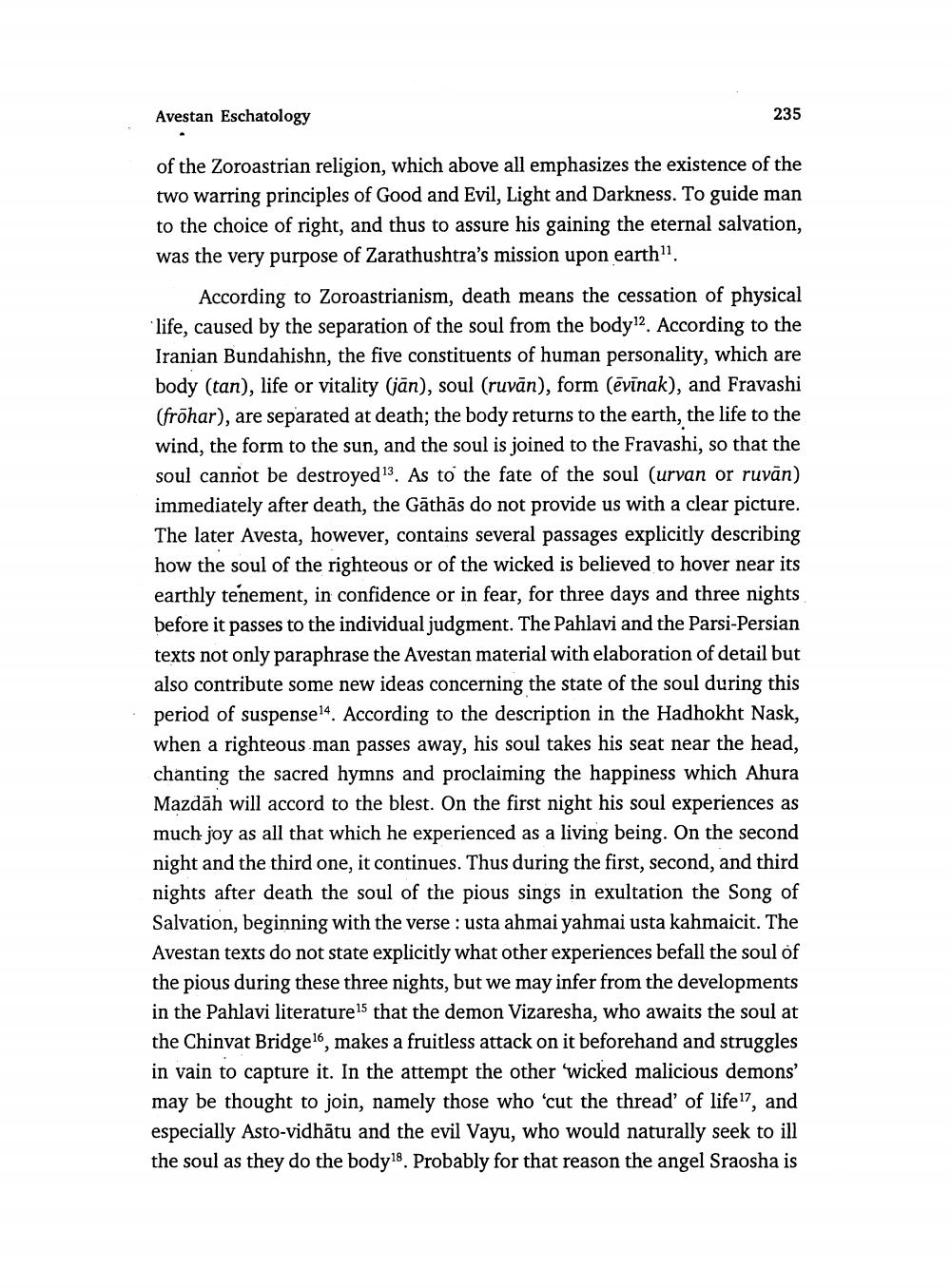________________
Avestan Eschatology
235
of the Zoroastrian religion, which above all emphasizes the existence of the two warring principles of Good and Evil, Light and Darkness. To guide man to the choice of right, and thus to assure his gaining the eternal salvation, was the very purpose of Zarathushtra's mission upon earth.
According to Zoroastrianism, death means the cessation of physical life, caused by the separation of the soul from the body!2. According to the Iranian Bundahishn, the five constituents of human personality, which are body (tan), life or vitality (jān), soul (ruvān), form (ēvīnak), and Fravashi (fröhar), are separated at death; the body returns to the earth, the life to the wind, the form to the sun, and the soul is joined to the Fravashi, so that the soul cannot be destroyed 13. As to the fate of the soul (urvan or ruvān) immediately after death, the Gāthās do not provide us with a clear picture. The later Avesta, however, contains several passages explicitly describing how the soul of the righteous or of the wicked is believed to hover near its earthly tenement, in confidence or in fear, for three days and three nights before it passes to the individual judgment. The Pahlavi and the Parsi-Persian texts not only paraphrase the Avestan material with elaboration of detail but also contribute some new ideas concerning the state of the soul during this period of suspense?4. According to the description in the Hadhokht Nask, when a righteous man passes away, his soul takes his seat near the head, chanting the sacred hymns and proclaiming the happiness which Ahura Mazdāh will accord to the blest. On the first night his soul experiences as much joy as all that which he experienced as a living being. On the second night and the third one, it continues. Thus during the first, second, and third nights after death the soul of the pious sings in exultation the Song of Salvation, beginning with the verse : usta ahmai yahmai usta kahmaicit. The Avestan texts do not state explicitly what other experiences befall the soul of the pious during these three nights, but we may infer from the developments in the Pahlavi literature that the demon Vizaresha, who awaits the soul at the Chinvat Bridge16, makes a fruitless attack on it beforehand and struggles in vain to capture it. In the attempt the other 'wicked malicious demons' may be thought to join, namely those who 'cut the thread' of life"?, and especially Asto-vidhātu and the evil Vayu, who would naturally seek to ill the soul as they do the body18. Probably for that reason the angel Sraosha is




